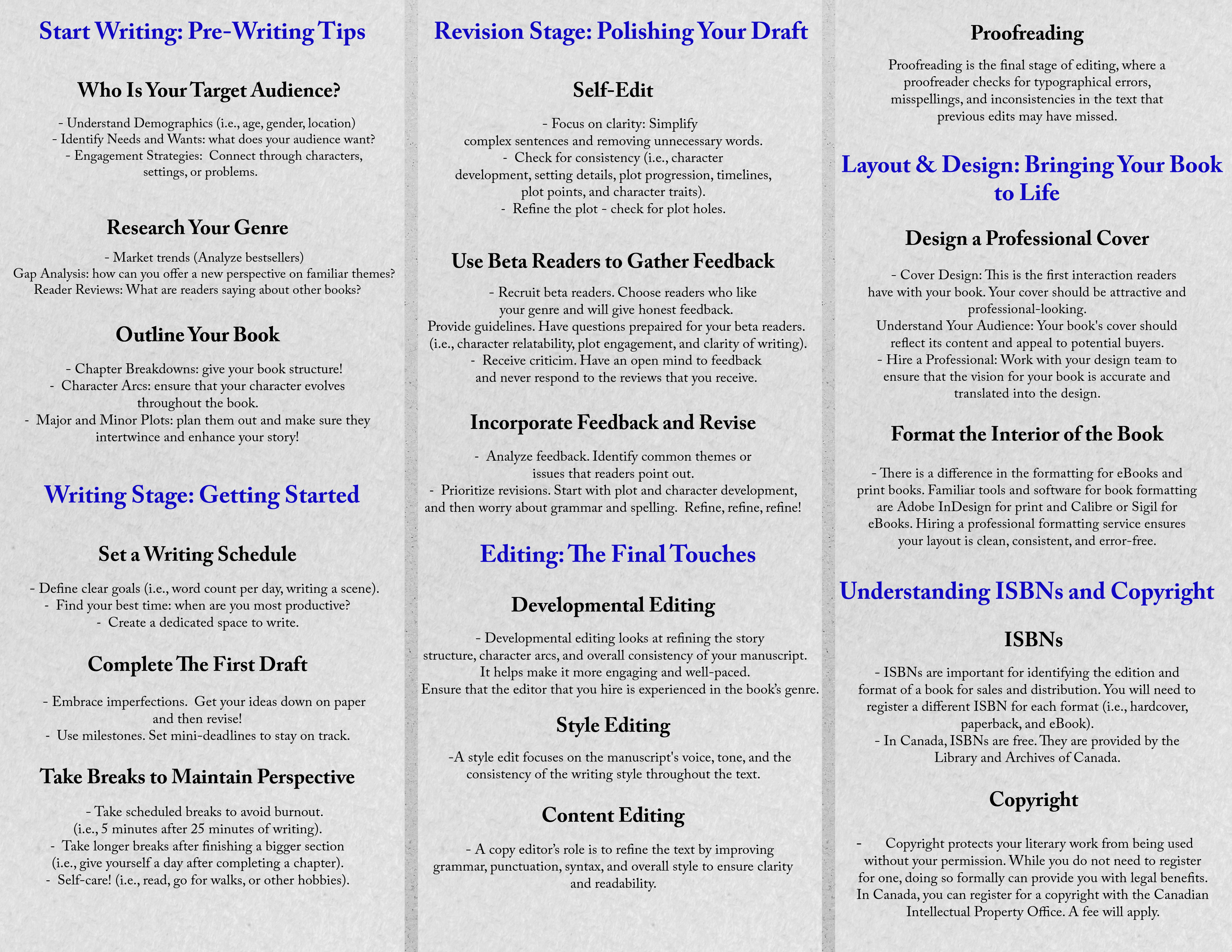Consistency is Key: Make writing a daily habit. Even dedicating just ten minutes a day can make a significant difference over time.
The Importance of Editing: Before you send your manuscript to a professional editor, make sure to edit it yourself multiple times. A polished draft can make the editing process smoother and more efficient.
Invest in Professional Editing: If you can afford it, hiring a professional editor is well worth the investment to ensure your work is at its best.
Expand Your Skill Set: Read widely to improve your writing, consider taking creative writing courses, and don't hesitate to join writing groups.
Feedback is Your Friend: Don’t shy away from seeking opinions on your work. Listen to feedback, and be willing to make changes to improve your manuscript.
Remember, every writer’s journey is unique, but these tips can provide a solid foundation as you work towards completing your book.
Balancing writing with other commitments is a challenge many aspiring authors face, and I can relate as I’ve been navigating this for the past seven years. Here are some tips to help you fit writing into your busy schedule:
Prioritize Writing as Self-Care: It’s easy to get bogged down by daily chores, job responsibilities, and family commitments. However, self-care is crucial for mental health; for many, writing is a form of self-care. Try to allocate specific blocks of time for writing and stick to them as much as possible.
Set a Schedule: Consistency can help you make progress, even if it’s slow. If you can stick to a writing schedule, even if it’s just a few minutes a day, you’ll find it easier to accomplish your writing goals.
Don’t Rush: Remember, writing is a long-term commitment. Rome wasn’t built in a night, and neither will your manuscript be. Take your time to develop your story; rushing through it can add unnecessary stress and compromise the quality of your work.
Taking a slow and steady approach, combined with setting aside regular time for writing, can help you balance your responsibilities while still making progress on your writing journey.
If you’re overwhelmed with ideas and don’t know where to start, you’re in a good place—having too many ideas is a good problem to have. Here are some steps to help you organize and prioritize them:
Document Every Idea: The first step is to write down all of your ideas as they come to you. Whether you text them to yourself, jot them down in a notebook, or scribble them on any scrap of paper you can find—make sure to capture them. It’s a common misconception that you’ll remember them later; chances are, you won’t.
Create a Digital Archive: Consider keeping a dedicated file on your computer to store your ideas. You can create separate folders for each book concept, adding notes, outlines, or even random thoughts related to each project.
Prioritize: Once you have all your ideas in one place, take some time to go through them. Choose the one that excites you the most—that’s usually a good indicator of where to start. Keep adding to that folder as you generate more ideas; eventually, you’ll have enough material to begin your project.
By systematically documenting and organizing your ideas, you’ll not only preserve them for future use, but you’ll also be able to more clearly see which one resonates with you the most, providing a starting point for your writing journey.





 Join The Adventure!
Join The Adventure! 
